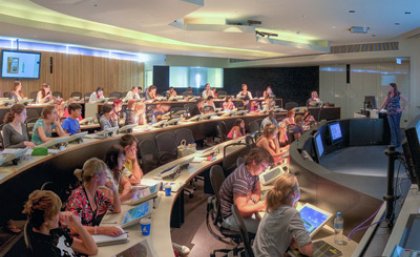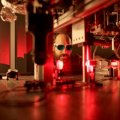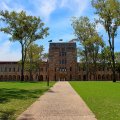
The University of Queensland will lead a consortium, including the University of Melbourne and the Australian Council for Educational Research, which has been awarded $16 million to establish a Science of Learning Research Centre designed to improve teaching across Australia and abroad.
The centre, to open this year, will be funded under the Australian Research Council Special Research Initiative scheme.
UQ Professor Ottmar Lipp, who will lead the centre, said it would bring together researchers from education, neuroscience and cognitive psychology to investigate the human learning process.
“We will work together with teachers in the field to further our understanding of learning and the conditions that facilitate it,” Professor Lipp said.
“Ultimately we want to provide an evidence base for educational practise and create outcomes that benefit learners in Australia and elsewhere.
“This collaboration will establish new criteria to assess the impact of different types of learning and strategies to inform teaching practices,” he said.
Professor Lipp, from the School of Psychology in UQ’s Faculty of Social and Behavioural Sciences, will be joined by UQ Queensland Brain Institute’s Professor Pankaj Sah, Professor John Hattie from the University of Melbourne’s Graduate School of Education, and Dr Mike Timms from the Australian Centre for Education Research to lead the ARC Science of Learning Research Centre.
The centre was a key recommendation of the Prime Minister’s Science, Engineering and Innovation Council Expert Working Group report, Transforming Learning and the Transmission of Knowledge (2009).
Professor Lipp said the centre would involve 27 researchers in Australia and overseas, including 11 from UQ.
“Australian collaborators are based at UQ, the Centre for Educational Research (ACER) and The University of Melbourne, as well as at Deakin, Flinders, Charles Darwin, New England, and Macquarie universities,” he said.
“We are proud to have the support of the Victorian, Queensland and South Australian education departments, Questacon, and the Benevolent Society.
“Internationally we will work with colleagues at North Carolina State University, the Institute of Education (London), Carnegie Mellon University and University College London.”
UQ Deputy Vice Chancellor and Vice-President (Research) Professor Max Lu said he believed the centre would lead to "breakthrough science that would underpin a new paradigm for learning and teaching at all levels, from early childhood to adult education".
"It will also provide research opportunities tapping into the rich data and powerful tools associated with Massive Open Online Courses (MOOCs) in the future to advance learning analytics, possibly resulting in revolutionary personalised educational methods," Professor Lu said.
"I warmly congratulate the team, led by Professor Ottmar Lipp, on the successful funding," he said.
The centre will house two world-class experimental classrooms with advanced imaging technologies that will allow researchers to observe and understand the brain in action in a way never before possible. The classrooms will be central to the centre translating practice into research, and research into practice.
Media contacts: Janelle Kirkland, UQ Communications, 07 3346 0561 or j.kirkland@uq.edu.au or communications@uq.edu.au.
.jpg)












